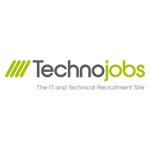The last year was one of great change for the recruitment sector and now, more than ever, it’s crucial that leaders remain acutely aware of trends in both the local and global recruitment landscapes. So, what are the trends that will define recruitment in 2018?
HR tech continues to thrive
Over the last year we’ve seen far greater adoption of HR tech than ever before, and the technology will only continue to thrive in 2018. As the platforms available to in-house teams become ever more sophisticated, incorporating new technologies including AI, chatbots and machine learning, the benefits of investing in new technology will become increasingly evident. These advanced systems also lend themselves to data driven recruitment practices, and improved talent analytics, allowing HR teams to evaluate and improve the hiring process.
Diversity
As employers become acutely aware of the importance of addressing subconscious bias in the recruitment process, increased diversity attraction and training are becoming key focuses for HR teams. Fostering workplace diversity makes business sense for all employers, and many organisations will be investing heavily to ensure that their employer brands and recruitment process are inclusive to all in 2018 and beyond.
Blockchain makes its mark
Blockchain was one of the most talked about technologies in 2017, but this year will see the technology – which underpins cryptocurrencies like Bitcoin – make its mark on the recruitment sector. This year we will begin to see new applications for the technology gain traction, such as blockchain verified CVs. Verified CVs, or ‘Intelligent Profiles’ store every aspect of a career profile on a blockchain making the CV verified at the beginning of the hiring process for employers
Ever more targeted candidate attraction
As digital skills gaps continue to grow in a number of industries, sourcing the right candidates for a role can become incredibly difficult. Recruiters looking to find the best candidates will need to start targeting niche communities in new ways. New entrants including Facebook and Google, have realised the opportunity of using their reach for hiring. Niche jobsites that attract specific communities will continue to offer targeted value.
The rise of the gig economy
The gig economy has fundamental altered the employment market in recent years, with 1.1 million people in the UK working within the gig economy in the UK, nearly as many people as who work for the NHS, recruiters and HR teams will have to look at new way of candidate attraction, and the changing profile of these potential applicants.
Employer branding becomes crucial
How best to attract passive candidates has been a reoccurring topic of discussion among recruitment leaders in the last 12 months, and as we look to 2018 employer branding is invaluable. Cultivating a strong employer brand is no longer a ‘nicety’ but a necessity. Recruiters and in-house teams alike need to increase channels that promote job experiences, employee advocacy, and share thought leadership in order to target candidates – potentially even before candidates have started searching for a new role.
Compliance is key
As GDPR comes into force in 2018, organisations across Europe, and the rest of the globe, will have to comply with stricter data privacy laws- more than ever before. The fragmented nature of the recruitment sector in the UK means that often candidate’s personal data is passed between multiple parties during the hiring process. Recruitment companies will have to work on best practice to ensure they comply with the new law, and it will be interesting to see how the industry works together to implement these new practices. One thing is certain – candidate transparency will be essential.
Contractor legislation
IR35 will also impact the employment market this year. The knock-on effect from changes to the payroll legislation will mean that contractors continue to drift away from the public sector, or demand far higher daily rates. HMRC are also expected to consult on broader use of this legislation in 2018 which would further impact the contracting market in the future.





